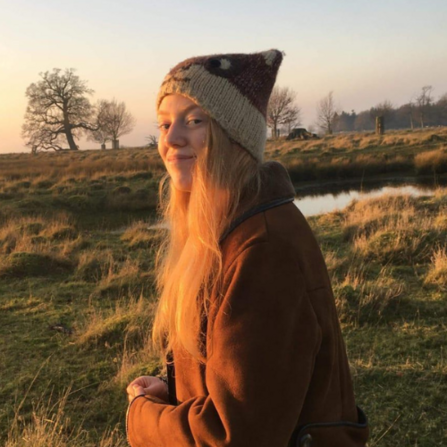Mendip Hills Farm Cluster
The Mendip Hills Farm Cluster began in 2016, bringing together farmers and other land managers in west Mendip, to learn and share experience, creating a strong peer-network and delivering on-ground nature recovery projects.
In 2023, the Mendip Hills Farm Cluster group was extended to include members from throughout the Mendip Hills NCA - stretching from Cheddar in the West, over mid and east Mendip to Frome.
By working collaboratively, group members deliver benefits for nature across their varied landholdings that go far beyond what could be achieved if they each worked alone. Through this, the members are helping to connect fragmented habitats and provide the network of habitats that's needed for nature to recover.Somerset Wildlife Trust
What is a farm cluster?
A farm cluster brings together farmers and other land managers within a landscape to explore new ideas and approaches to sustainable land management, using members' collective experience and skills to deliver benefits across their landholdings.
What are the shared purposes of the group?
We are a learning hub with a collaborative, holistic approach to explore and share ideas for regenerating soils and support the biodiverse ecosystem of our landscape: Core objectives:
- Regenerate soils and deliver a holistic vision for the Mendip Hills
- Work collaboratively to deliver landscape scale ecological connectivity
- Adopt sustainable land management approaches to support nature and climate as part of a happy, healthy and resilient community
- Provide a meaningful contribution to a vibrant, diverse and thriving local economy which facilitates essential services
What is Somerset Wildlife Trust's role?
Somerset Wildlife Trust initiated formation of the Mendip Hills Farm Cluster in 2016, providing a dedicated 'Facilitator' to run ongoing meetings, training sessions, site visits and skills-sharing workshops for the group. This work was supported by a grant from the Countryside Stewardship Facilitation Fund, with a further CSFF grant secured in 2023 helping to fund continuation and expansion of the group into mid and east Mendip .
The Trust provides the group with ecological expertise and understanding of Mendip's habitats and species, helping members to identify ways they can contribute to the landscape-scale network of habitats needed for nature to recover. This includes sharing experience as a fellow group member, as several of SWT's Mendip nature reserves are part of the cluster.
SWT's Farm Cluster Facilitator can:
- Provide guidance on Countryside Stewardship, including development of agreements that complement one another to deliver more for nature as a group than we could individually
- Facilitate sharing of expertise and best practice, building collaborative relationships between group members
- Signpost group members to any grants and funding opportunities which may be relevant
- Coordinate landscape-scale habitat management across members’ land to maximise benefit to wildlife and make the work as efficient as possible
- Organise species and habitat surveys to make sure that nature is benefiting from the group's work
- Bring in specialist expertise to enable group members to explore new approaches and funding sources to enable sustainable land management
What's involved with being a group member?
Group members benefit from:
- access to training sessions and workshops led by the Farm Cluster Facilitator, including advice from external experts and opportunities to hear from other group members on a range of topics within the group’s objectives
- support from the Facilitator to think at a landscape scale and benefit from the additional funding opportunities this can offer by working as collaborative group.
- being part of a farmer-led local community, where members can challenge, inspire, support and learn from each other through a knowledge sharing network.
- support to incorporate the objectives of the group when planning on-farm management
To become a group member you need:
- control over management decisions on your land
- an SBI number (estate managers, additional staff or family members involved in land management decisions can also join the group as a nominated representative)
- willingness to share appropriate data about your operations with SWT and other group members where this information is not commercially sensitive and can provide learning opportunities for other members
Note also:
- there is no required time commitment to be part of the group; all activities are optional based on your own availability and interest
- You do not have to be in a countryside stewardship agreement to join the group and there is no requirement to do so after joining
- There is no cost or fee associated with group membership
- There is no minimum landholding size to join
How is Somerset Wildlife Trust's farm cluster work funded?
The Mendip Hills Farm Cluster and Facilitator role are supported by funding from the Countryside Stewardship Facilitation Fund. To increase impact and delivery of the farm cluster in mid and east Mendip, this is supplemented with funding received from a section 106 agreement (a planning obligation to mitigate environmental impact) between Somerset Council and Aggregate Industries.
Contact our Mendip Hills team
To find out more about the Mendip Hills Farm Cluster, including how you could join the group, please contact us.
Jemima Western, Mendip Hills Farm Cluster Facilitator

Jemima is a zoologist with a passion about the intersection of landscape-scale ecology and farming. Jemima works with farmers, partners, and other land managers across the Mendip Hills National Character Area to deliver landscape-scale restoration of habitats through collaborative working.
Contact: Email: jemima.western@somersetwildlife.org

